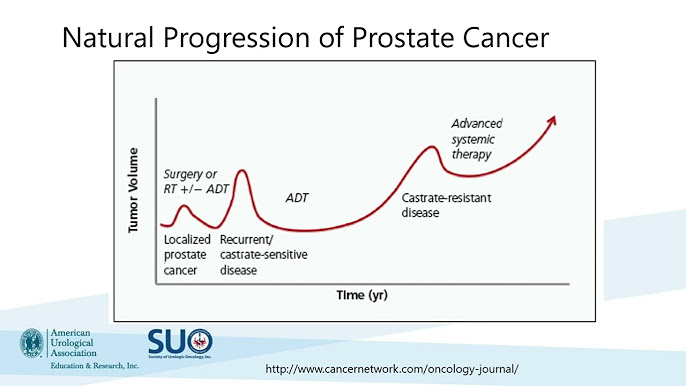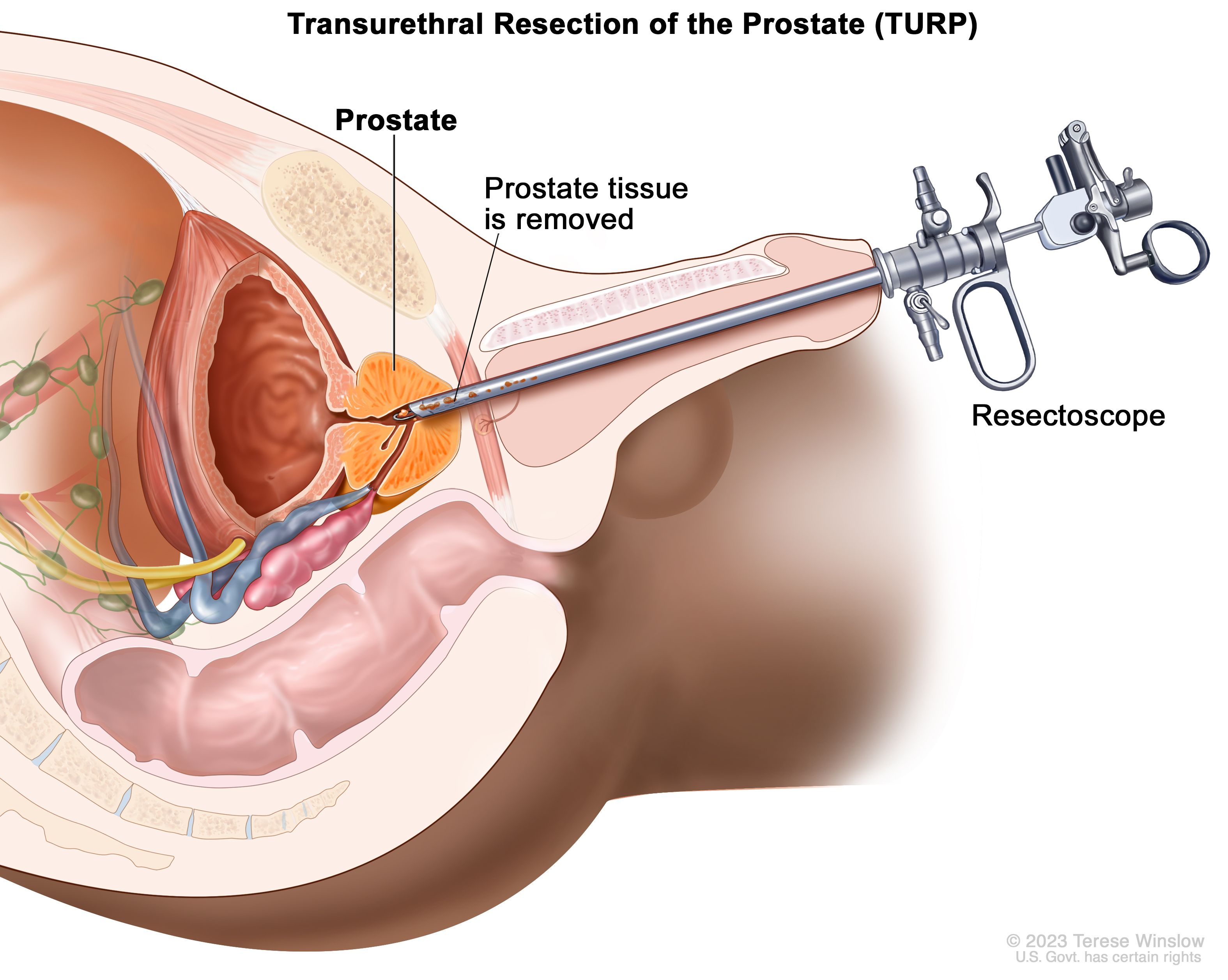The Greatest Guide To Best Prostate Cancer Doctor
The Greatest Guide To Best Prostate Cancer Doctor
Blog Article
Effective Prostate Cancer Therapy Choices for Men
Prostate cancer is a common issue amongst guys, with therapy choices differing relying on the stage and aggression of the illness. While surgery continues to be a key therapy method, there are also different methods such as radiation therapy, hormone treatment, and immunotherapy that have shown encouraging results. Additionally, approaches like careful waiting and energetic surveillance are acquiring acknowledgment for their duty in taking care of prostate cancer cells. Comprehending the nuances of these therapy alternatives and their performance is vital for making educated choices regarding one's wellness and wellness.
Surgery as Treatment Choice
Surgical treatment stands as a key treatment option for prostate cancer clients in instances where the disease is local and surgery is considered suitable by the health care team. Prostate cancer cells surgical treatment intends to remove the malignant tissue from the prostate gland, either partially (prostatectomy) or totally (extreme prostatectomy) The choice to go with surgical treatment is generally based upon different elements, including the stage of cancer cells, the client's total wellness, and prospective adverse effects.
One typical surgical strategy is robotic-assisted laparoscopic prostatectomy, which uses accuracy and marginal invasiveness compared to conventional open surgical procedure. This strategy uses robotic arms controlled by the specialist to eliminate the prostate gland with enhanced mastery and visualization.
While surgical treatment can be effective in removing local prostate cancer, it may require threats such as urinary system incontinence and erectile dysfunction. Patients taking into consideration surgical treatment ought to participate in extensive discussions with their doctor to weigh the advantages and prospective drawbacks of this treatment choice.
Radiation Treatment for Prostate Cancer
Having checked out the role of surgery in dealing with localized prostate cancer, the emphasis now changes to discussing radiation therapy as one more vital therapy method for this condition. Radiation treatment uses high-energy rays to target and damage cancer cells in the prostate gland. There are 2 primary kinds of radiation therapy frequently utilized for prostate cancer: exterior beam radiation and brachytherapy.
Exterior beam radiation involves guiding radiation from an equipment outside the body in the direction of the prostate. This approach is commonly administered daily over several weeks. On the other hand, brachytherapy entails placing radioactive seeds directly right into the prostate, providing radiation from within. This method permits for an extra targeted dose of radiation to the tumor while reducing exposure to bordering healthy and balanced tissues.
Radiation treatment can be a standalone therapy for local prostate cancer or used in mix with various other treatments, such as surgery or hormonal agent therapy, depending upon the phase and aggressiveness of the cancer. best prostate cancer doctor. Common negative effects of radiation treatment might consist of fatigue, urinary problems, and digestive tract issues, which are typically short-term and can be taken care of properly
Hormone Therapy in Prostate Cancer Cells
Hormone therapy is a crucial treatment technique in taking care of prostate cancer, particularly in situations where the cancer cells has spread out past the prostate gland. Prostate cancer cells usually rely upon male hormonal agents, such as testosterone, to grow. Hormonal agent treatment, also known as androgen deprival therapy, aims to either lower the manufacturing of these hormonal agents in the body or obstruct their effects on the cancer cells.
There are different kinds of hormone therapy offered for prostate cancer therapy. One typical strategy is making use of medicines called LHRH agonists and villains, which work by reducing testosterone levels. One more choice is anti-androgens, which obstruct the activity of androgens on the cancer cells. Some guys might take advantage of a combination of these treatments to properly take care of the cancer cells.
Hormone treatment can aid decrease the development of prostate cancer, minimize symptoms, and boost lifestyle. However, it is not a medicinal treatment and may include side impacts such as hot flashes, tiredness, and loss of sex drive. Normal monitoring and discussions with medical Go Here care carriers are essential to manage the impacts of hormonal agent treatment efficiently
Immunotherapy for Prostate Cancer Cells
Immunotherapy has arised as an appealing treatment modality for prostate cancer, providing brand-new methods for combating the disease. Unlike typical therapies like surgical procedure or radiation, which straight target cancer cells, immunotherapy works by utilizing the body's immune system to acknowledge and assault cancer cells.
One type of immunotherapy being checked out for prostate cancer cells is checkpoint preventions. These medications target proteins that stop the immune system from assaulting and recognizing cancer cells. By blocking these proteins, checkpoint preventions can boost the immune feedback versus prostate cancer cells.
An additional strategy includes therapeutic vaccines, which stimulate the immune system to target details antigens found on prostate best prostate cancer doctor cancer cells. These vaccinations can assist the body immune system determine and ruin cancer cells better.


Watchful Waiting and Energetic Monitoring
In the realm of prostate cancer management, particularly for instances where hostile intervention might not be immediately needed, the technique of watchful waiting and active monitoring plays a substantial function. Careful waiting view includes keeping track of the cancer without prompt therapy, intervening only if the cancer reveals signs of progression. This technique is often taken into consideration for older patients with slow-growing growths or those with multiple health issues where the threats of treatment might outweigh the benefits.
Energetic security, on the various other hand, entails regular monitoring through PSA examinations, digital anal tests, and periodic biopsies. It is commonly recommended for individuals with low-risk prostate cancer cells to carefully track any kind of changes in the cancer cells's habits. Treatment options can be reevaluated. if there are indications of the cancer coming to be a lot more hostile.
Both careful waiting and energetic surveillance goal to avoid unneeded treatments and their possible side results, such as urinary incontinence and erectile dysfunction, while ensuring timely treatment if the cancer progresses. These techniques offer a balance between managing the cancer cells successfully and protecting the person's lifestyle.
Verdict

Prostate cancer cells surgery intends to get rid of the malignant cells from the prostate gland, either partially (prostatectomy) or entirely (radical prostatectomy)Having checked out the role of surgical procedure in treating localized prostate cancer cells, the focus now changes to reviewing radiation therapy as another vital treatment modality for this condition.Hormonal agent treatment is a critical therapy method in managing prostate cancer cells, particularly in instances where the cancer cells has spread out beyond the prostate gland. Watchful waiting involves keeping track of the cancer cells without prompt treatment, stepping in just if the cancer shows indications of development. It is normally advised for individuals with low-risk prostate cancer to carefully track any kind of modifications in the cancer cells's behavior.
Report this page